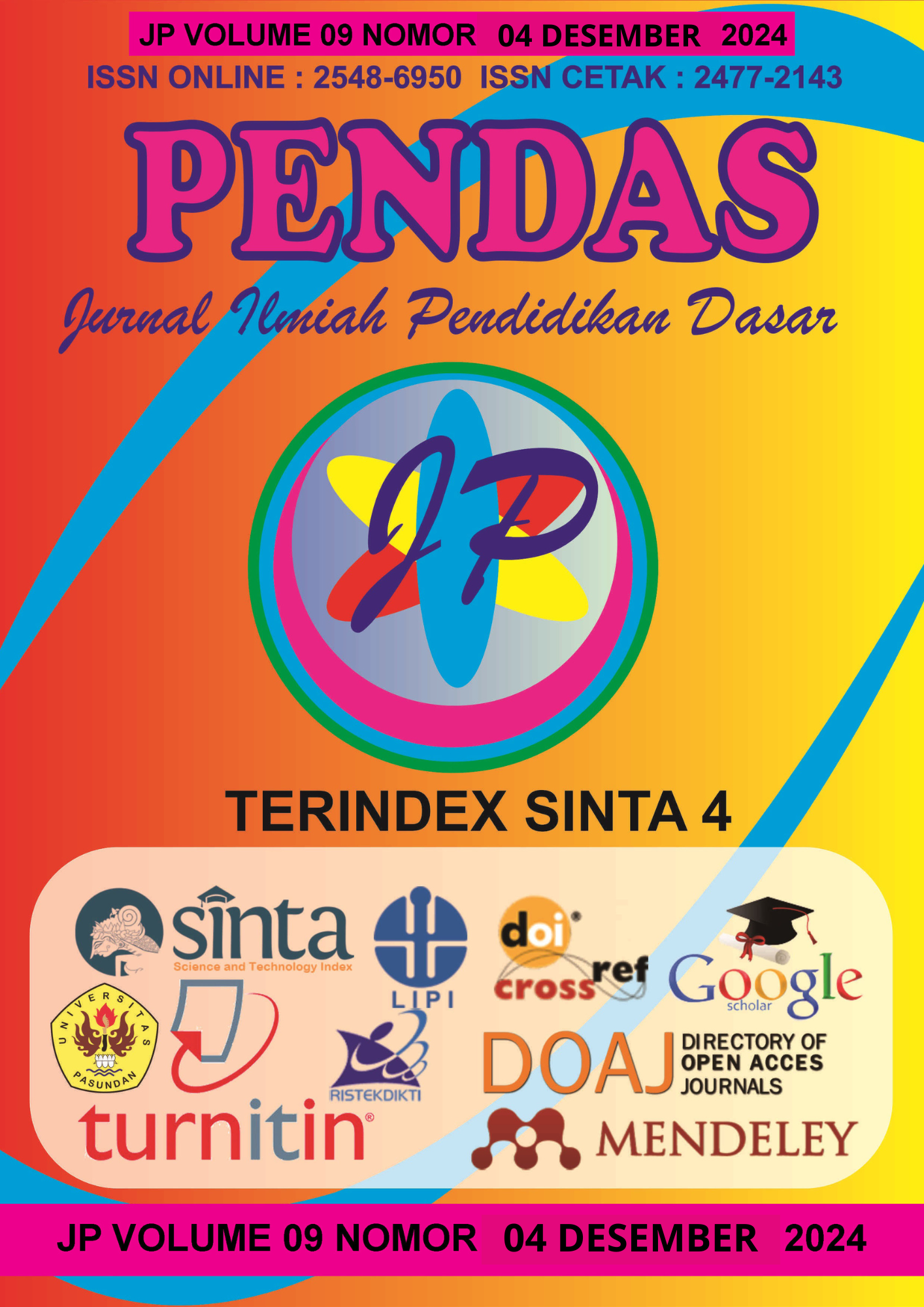KOLABORASI BERKELANJUTAN GURU DAN ORANG TUA MELALUI BUKU PENGHUBUNG DIGITAL: MENDORONG PENDIDIKAN KARAKTER EFEKTIF DI ERA INDUSTRI 4.0
Keywords:
Digital Liaison Book, Teacher-Parent Collaboration, Character Education, Industry 4.0 Era.Abstract
ABSTRACT
This study aims to examine the effectiveness of using digital liaison books as a tool to improve students' character, particularly their spiritual and social attitudes, at SD Negeri Cimahi Mandiri 3. Additionally, this study seeks to strengthen the ongoing collaboration between teachers and parents in the character education process during the Industry 4.0 era. The method used in this research is a mixed-methods approach, combining both quantitative and qualitative methods. Quantitative data were obtained by comparing student behavior before and after the implementation of digital liaison books. Meanwhile, qualitative data were gathered through direct observation of students' attitudes at school, along with interviews and testimonials from parents regarding their experiences with the digital liaison books. The results showed a significant improvement in the spiritual attitude dimension, which includes indicators such as adherence to worship, praying before and after activities, gratitude, and tolerance in religious practices. Significant progress was also observed in the social attitude dimension, which includes indicators such as honesty, confidence, discipline, responsibility, courtesy, and caring. Furthermore, the results revealed that collaboration between teachers and parents became more effective, enabling consistent and real-time monitoring and guidance of student behavior. This study recommends the integration of digital technology in schools as a strategy to strengthen character education, with active parental involvement. The use of digital liaison books has been proven to be an effective solution for enhancing students' spiritual and social attitudes while also increasing parental involvement in character education at the elementary school level.
Keywords: digital liaison book, teacher-parent collaboration, character education, Industry 4.0 era.
Downloads
References
Buku :
Bogdan, R. C., & Biklen, S. K. (2007). Qualitative Research for Education: An Introduction to Theories and Methods. Pearson Education
Fraenkel, J. R., & Wallen, N. E. (2012). How to Design and Evaluate Research in Education. McGraw-Hill Education.
Johnson, B., & Christensen, L. (2014). Educational Research: Quantitative, Qualitative, and Mixed Approaches. SAGE Publications.
Santrock, J. W. (2007). Educational Psychology. McGraw-Hill Education.
Suryadi. (2013). Strategi Pembelajaran Pendidikan Karakter. Bandung: PT. Remaja Rosdakarya
Jurnal :
Afriani, S. dkk. (2022). Analisis Teori Operant Conditioning B.F Skinner terhadap Kemandirian Belajar Peserta Didik Selama Masa Pandemi Covid-19. MODELING: Jurnal Program Studi PGMI. 9(3), 645-660
Bronfenbrenner, U. (1979). The Ecology of Human Development: Experiments by Nature and Design. Harvard University Press
Creswell, J. W., & Clark, V. L. P. (2018). Designing and Conducting Mixed Methods Research. SAGE Publications
Epstein, J. L. (2011). School, family, and community partnerships: Preparing educators and improving schools. Routledge
Hidayati, T. (2018). Sinergi Guru dan Orang Tua dalam Pendidikan Karakter Anak. Yogyakarta: Deepublish
Lickona, T. (1991). Educating for Character: How Our Schools Can Teach Respect and Responsibility. Bantam Books
Lickona, T. (2012). Character Matters: How to Help Our Children Develop Good Judgment, Integrity, and Other Essential Virtues. New York: Simon & Schuster.
Nugraha, I. dkk. (2021). Pemanfaatan Teknologi Informasi dalam Penguatan Karakter Pancasila di Kalangan Pelajar. Definisi: Jurnal Agama dan Sosial-Humaniora. 1(3), 158-169
OECD. (2018). The Future of Education and Skills: Education 2030. Paris: OECD Publishing.
Prensky, M. (2010). Teaching Digital Natives: Partnering for Real Learning. Corwin Press.
Syah, I. J. (2019). Metode Pembiasaan Sebagai Upaya Dalam Penanaman Kedisiplinan Anak Terhadap Pelaksanaan Ibadah (Tela’ah Hadits Nabi Tentang Perintah Mengajarkan Anak Dalam Menjalankan Sholat). JCE (Journal of Childhood Education), 2(2)
Downloads
Published
Issue
Section
License
Copyright (c) 2024 Pendas : Jurnal Ilmiah Pendidikan Dasar

This work is licensed under a Creative Commons Attribution 4.0 International License.



















